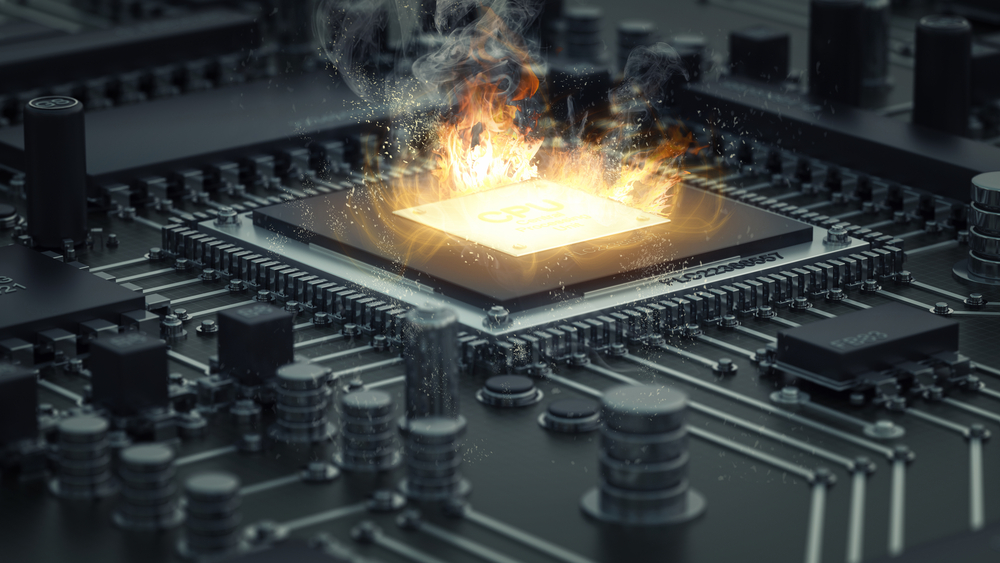Intel’s 11th Generation Rocket Lake-S processors aren’t in stores yet, but engineering and qualification samples of the chips are evidently going around the black market. Romanian news outlet Lab501 and a Chinese YouTuber have released early reviews of the Core i7-11700K and Core i9-11900K, respectively. Since these are not retail samples, we recommend caution when approaching the results.
By now, Rocket Lake-S shouldn’t require any introductions. The forthcoming chips are still on Intel’s 14nm process node but wield the new Cypress Cove cores, which Intel claims will bring IPC uplifts up to 19%. AMD’s Ryzen 5000 (codename Vermeer) chips have dethroned Intel as the best gaming processor on the market, and the Blue Team is keen to recover its title. On the graphics end, Rocket Lake-S comes equipped with Intel’s 12th Generation Xe LP graphics with a maximum configuration of up to 32 Execution Units (EUs).
The Core i7-11700K and Core i9-11900K are reportedly eight-core, 16-thread processors with a 125W TDP. Intel usually differentiats its Core i7 and i9 lineups by adding more cores (or threading) to the i9 series, but given a hard cap of eight cores for Rocket Lake, it appears that clock rates are the only difference between the two families.
The Core i7-11700K has been rumored to feature a 3.6 GHz base clock, 5 GHz boost clock, and a 4.6 GHz all-core boost clock. Being the flagship part, the Core i9-11900K appears to have a 3.5 GHz base clock, 5.3 GHz boost clock, and a 4.8 GHz all-core boost clock.
Intel Core i7-11700K Benchmarks
| Processor | 3Ds Studio Max 2020* | Blender* | DaVinci Resolve 15* | HandBrake 1.2.2* | WinRAR 5.91 | 7-Zip 19 | Cinebench R20 | POV-Ray 3.7 | PCMark 10 | Power Consumption* |
|---|---|---|---|---|---|---|---|---|---|---|
| Ryzen 7 5800X | 859 | 575 | 133 | 47 | 32,588 | 94,765 | 6.035 | 5.422 | 8,325 | 224 |
| Core i7-11700K | 917 | 631 | 154 | 48 | 28,072 | 76,816 | 5,615 | 4,505 | 7,927 | 286 |
*Lower is better.
AMD’s Ryzen 7 5800X simply dominated the Core i7-11700K across the board in terms of application performance. In some benchmarks, the margins were less than 10%, while in others, like WinRAR or 7-Zip, the Ryzen 7 5800X delivered up to 16.1% and 23.3% higher performance.
The Core i7-11700K’s power consumption also stood out, and not in a good way. With a Prime95-induced load, the Core i7-11700K drew up to 286W. Unfortunately, Lab501 didn’t include the Core i7-10700K to get an idea of the generation-over-generation power consumption. However, the Core i7-11700K pulled up to 27.7% more power than the Ryzen 7 5800X. Therefore, the Core i7-11700K wasn’t just slower than the Ryzen 7 5800X, but it was more power hungry as well.
| Processor | Average | 4K | WQHD | FHD |
|---|---|---|---|---|
| Ryzen 7 5800X | 132.76 | 89.20 | 136.80 | 163.15 |
| Core i7-11700K | 131.27 | 89.80 | 133.90 | 161.15 |
According to Lab501’s results, the Ryzen 7 5800X was, on average, up to 1.1% faster than the Core i7-11700K. If we look at it individually, the Ryzen 7 5800X was marginally better than the Core i7-11700K in WQHD and FHD with differences of 2.2% and 1.2%, respectively.
Obviously, gaming is important for Intel, but the Core i7-11700K failed to help the chipmaker recover the lost ground. However, with such slim performance deltas, pricing could define the winner – we just don’t know pricing for Rocket Lake yet.
Intel Core i9-11900K Benchmarks
| Processor | PCMark 10 | Blender | X264 FHD Benchmark | V-Ray | Cinebench R15 | CPU-Z Single Thread | CPU-Z Multi Thread |
|---|---|---|---|---|---|---|---|
| Core i9-11900K | 14,536 | 142.06 | 72.8 | 17,181 | 2,526 | 719.6 | 7035.5 |
| Ryzen 7 5800X | 14,062 | 164.49 | 64.2 | 16,317 | 2,354 | 657.0 | 6366.0 |
The Core i9-11900K, on the other hand, had no problems outperforming the Ryzen 7 5800X in application workloads. Intel’s chip pumped out between 3% to 13% more performance than the Ryzen 7 5800X.
| Processor | Wolfenstein: Youngblood | Total War: Three Kingdoms | PlayerUnknown’s Battlegrounds | Cyberpunk 2077 | Hitman 3 | League of Legends | Assassin’s Creed Valhalla |
|---|---|---|---|---|---|---|---|
| Ryzen 7 5800X | 366 | 117 | 215 | 113 | 156 | 473 | 123 |
| Core i9-11900K | 353 | 117 | 215 | 110 | 158 | 361 | 122 |
It would seem that even the Core i9-11900K had trouble beating the Ryzen 7 5800X in gaming. Out of the seven titles, the Ryzen 7 5800X outpaced the Core i9-11900K in four of them. Both chips tied in two games, and the Core i9-11900K only managed to defeat the Ryzen 7 5800X in Hitman 3.
From what we’ve seen so far, the Core i7-11700K is no match for the Ryzen 7 5800X in either application or gaming workloads. Intel redeemed itself with the Core i9-11900K as it offers better application performance over the Ryzen 7 5800X.
Gaming, which Intel is big on, still seems to be on the Ryzen 7 5800X’s side though. Of course, we can’t pass judgment until proper reviews come out.
Although it’s hard to find any Zen 3 chips nowadays, the Ryzen 7 5800X retails for $449 when in stock. We can’t be certain of Rocket Lake’s pricing until the processors officialy come out. However, if preliminary retailer listings are even remotely accurate, the Core i7-11700K and Core i9-11900K may well end up with official price tags in the $450 and $600 range, respectively.
